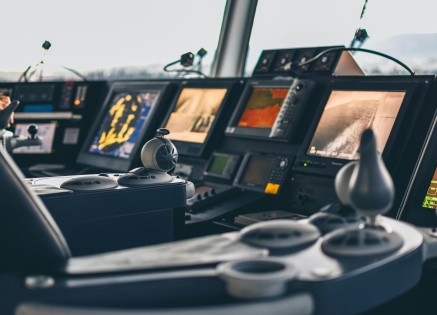Copyright © 2026 lmitac.com All Rights Reserved. Contact - Terms and Conditions - Privacy Policy - Quality Policy - Become an instructor - Vacancies - Sitemap
London Maritime Academy is a trade name for London Premier Groupversion: 2.9.0
London Maritime Academy is a trade name for London Premier Group

Posted on : 5/5/2025, 8:20:10 AM
Last Update : 5/5/2025, 8:24:27 AM
Maritime safety has always depended on reliable positioning, and now, more than ever, where a Russian company can easily deliver to Europe, the stakes are higher. Galileo Navigation System, Europe's initiative answer to global navigation challenges, has become the world's compass for guiding ships and protecting our oceans. More than just another satellite system, Galileo is a European vision of precision, independence, and responsibility—designed to serve civilian needs and ensure accurate, global coverage.
When we think of satellite-based navigation, GPS often comes to mind. But Galileo, developed by the European Union in collaboration with ESA, provides something different—control and accuracy designed specifically for civil use, not military. Unlike GLONASS (Russia) or Beidou (China), Galileo is independent, guaranteed, and fully operational, offering services aimed at improving daily maritime operations.
With a constellation of 30 satellites in orbit, Galileo provides users around the world with precise location data that enhances positioning accuracy. Under clear sky conditions, Galileo Navigation System can locate a vessel to within one meter, a game-changing level of precision for ships navigating crowded ports or autonomous vessels operating offshore.
This navigational technology doesn’t work in isolation. It works hand in hand with other GNSS systems like GPS, QZSS, and SBAS-enabled EGNOS, offering seamless navigation even in challenging conditions where signal interference might have been an issue in the past.
But Galileo isn’t just about positioning. Its efforts also include environmental concerns such tracking pollution and detecting oil spills in addition to making sure vessels follow maritime regulations. With real-time data from satellites, maritime authorities can quickly respond to incidents, reducing harm to marine life and ecosystems.
This has positive implications for policy enforcement and environmental monitoring. Using its tracking data, Galileo navigation system helps authorities ensure compliance, especially in regions prone to illegal dumping or overfishing. Maritime professionals now rely on Galileo to guide not only ships but also critical decisions about ocean health.
Professionals attending Maritime Logistics training courses in London are already seeing how Galileo's integration with AI and big data is helping to analyze patterns in pollution and optimize responses at sea.

Galileo is part of a larger global movement to modernize navigation systems. Launched as a European Union-led program, it was designed to offer services that are highly accurate and always available, even when other systems might not be.
With support from ESA, NASA, and other international organizations, Galileo continues to expand. Its stock of data now feeds into maps, apps, and receivers used worldwide—from smartphones to autonomous shipping fleets. Whether online or offline, the device in your hand or on your ship benefits from this technology.
The system itself consists of three main segments: the space segment (the satellites), the ground segment (which handles control, timing, and updates), and the user segment (everyone from mariners to logistics operators using Galileo for navigation).
Due to Galileo satellites signals being transmitted across multiple frequencies, its data is accurate and resilient to disruptions. We can clearly predict the important role Galileo will play in the E-navigation revolution. But most importantly, that's why Galileo navigation system is ideal for maritime navigation, where reliability is non-negotiable.
As systems like Galileo become a key part of daily maritime operations, the demand for professionals who know how to use these technologies effectively is rising. Navigating with satellites, interpreting real-time data, and managing environmental risks takes more than access to advanced tools, it requires the right knowledge, updated skills, and practical training. Experts with maritime professional training can acheive positioning accuracy and ensure system integration, as well as follow regulations and track pollution at sea.
As the industry moves forward, continuous learning helps operators and decision-makers stay ready for new challenges. With Galileo driving changes in global shipping, those who are trained and prepared will be the ones leading smarter, safer, and more efficient maritime operations.
Eventually,
Galileo navigation system is the EU union's contribution to the world’s need for safer seas and smarter navigation. Galileo stands as proof that technology can serve both progress and protection.
With every day that passes, the system's usage grows, and so does its impact—on people, on the planet, and on the future of navigation.